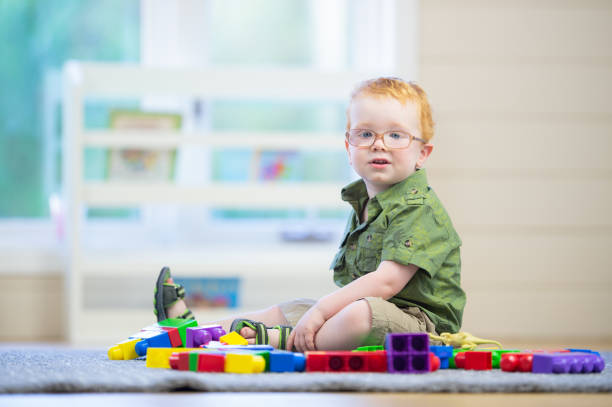Autism is a complex neurodevelopmental disorder that affects millions of children worldwide. The spectrum of autism is vast, with individuals exhibiting a wide range of strengths and challenges. Parents and caregivers of children with autism often face unique and demanding situations. While early intervention and therapy play a pivotal role in supporting these children, it’s crucial to recognize the importance of toys in their daily lives. In this blog, we’ll explore the significance of toys for children with autism in your home. And how autism toys can be powerful tools for their development and well-being.
Sensory Stimulation and Regulation
Children with autism often experience sensory sensitivities or seek sensory stimulation. Toys can be invaluable in helping them explore and regulate their sensory experiences. Toys that incorporate various textures, sounds, and lights can provide a safe and controlled environment for children to interact with their senses. For instance, fidget spinners, textured balls, or sensory boards can engage their tactile and auditory senses, offering a sense of comfort and security.
Communication and Social Skills
Toys can act as bridges for communication and social interaction. Interactive toys, such as board games or cooperative play sets, encourage children to communicate with others and develop social skills. These activities help them learn the art of taking turns, sharing, and cooperation, essential skills that can be challenging for some children with autism. Moreover, toys can serve as non-threatening conversation starters, enabling parents and siblings to connect with the child in a meaningful way.
Imagination and Creativity
Promoting imaginative play is essential for all children, including those with autism. Toys like building blocks, art supplies, or imaginative playsets can help children explore their creativity and develop problem-solving skills. Encouraging a child to create their own narratives and worlds through play fosters cognitive development and provides an outlet for self-expression.
Skill Development
Toys can be educational tools that aid in skill development. For instance, puzzle toys and educational games can enhance cognitive skills and problem-solving abilities. Additionally, some children with autism may struggle with fine motor skills, and toys that involve assembling, buttoning, or lacing can help improve their dexterity and coordination.
Emotional Expression and Regulation
Children with autism may find it challenging to express their emotions. Toys can serve as emotional outlets, enabling them to communicate and manage their feelings in a safe environment. For example, stuffed animals or dolls can become companions for children to confide in or express their emotions through play. Such toys help children process their emotions and learn to recognize and manage them effectively.
Conclusion
The importance of toys for children with autism in your home cannot be overstated. Toys are not just playthings; they are powerful tools for development, learning, and emotional well-being. They help children with autism navigate their unique challenges and unlock their hidden potential. Whether it’s through sensory stimulation, communication and social skill development, imaginative play, skill improvement, or emotional expression, toys provide a holistic approach to supporting these children.
By selecting toys such as autism sensory tent that cater to a child’s specific needs and preferences, parents and caregivers can create an enriching and nurturing environment at home. The right toys can complement therapeutic interventions and offer a well-rounded approach to supporting children with autism on their journey to growth and development. So, embrace the world of toys, and watch as they open doors to endless possibilities for your child with autism.

